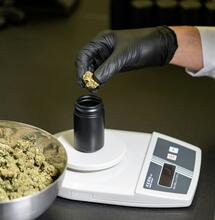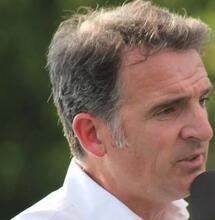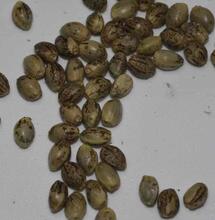Is Switzerland’s Weed Experiment Successful?

Switzerland is another European country that is currently tracing its path toward legal cannabis. However, Swiss authorities have taken an alternative approach in trying to regulate the recreational use of the plant. The Alpine country launched cannabis pilot programs in several cities and cantons. The aim of these test programs is to get familiar with consumer interests and popular product types, as well as to promote responsible use of cannabis.
Cannabis legalization is slowly but steadily coming to Europe. While Germany is the latest country that has just joined the legal cannabis scene, its neighbor Switzerland is also seeking to enforce regulation.
Swiss officials opted for activating cannabis pilot programs that offer recreational users a limited number of legal cannabis products.
Test cannabis programs have been launched in several cities across the country in the last couple of years, including in Zürich, Lausanne, Bern, Bienne, and Lucerne, as well as the cantons of Basel-Stadt and Geneva.
Last month, the first data from the pilot programs was shared. The insights represent an early look into the demand for legal cannabis and related trends among Swiss cannabis users.
Data will be used by the authorities to eventually determine if there are any public health implications or risks from recreational cannabis use in Switzerland.
By regulating the distribution of cannabis via existing pharmacies in cities with active pilot programs, authorities are also trying to create a framework that promotes a lower-risk marijuana consumption.
First Results from Zürich’s Cannabis Pilot Program
One of the first pilots in Switzerland is ZüriCan, launched in 2022 in the biggest Swiss city of Zürich. A total of 2,100 participants are able to access legal marijuana through this program.
As of March, 2024, 1,928 people used the program and purchased cannabis as part of ZüriCan, according to recently shared interim data.
The program is most popular with the 28-32 age group, while the median age of the participants is 35 years.
More than 80% of ZüriCan registered users are men, only 18% are women, and 1.2% are nonbinary. Such a disparity was not unexpected, however.
An online survey conducted in Switzerland back in 2016 revealed that the most significant part of cannabis consumers in the country are men.
The early data further suggests that the majority of users consume weed four or more times a week. Around a fourth of the participants were established to have cannabis use disorder before obtaining access to the products in the trial.
The pilot program has so far offered nine options. Users can choose between five flower and four hash products with different amounts of THC or CBD.
The data suggests that there’s interest for all types of products. Almost 16,500 individual transactions have been completed in the designated period, and around 140 kg (309 lbs) of cannabis has been sold in five-gram packs.
For now, the Zürich data does not provide any information about which types of cannabis are most popular among users.
First Results from Basel-Stadt Weed Program
The canton of Basel-Stadt has also shared interim data for its test cannabis program. This is a smaller program compared with the one in Zürich, with only 378 participants being granted access to legal cannabis products.
Under Weed Care (the name of the program), participants can purchase six different cannabis products. They are also asked to fill in questionnaires regarding their mental and physical health as part of the program.
According to the early data from Basel-Stadt, around 11% of the Weed Care participants have dropped out from the program. The reason for this is failure to answer the required questionnaires.
In the first year of Weed Care, a total of 8,176 weed purchases were made and 41 kg of cannabis was sold. Participants on average consumed 1.2 pot per day, and used weed approximately 20 days of the month.
Almost all participants or 94% said they were happy with the pharmacies where they make the purchases. Pharmacists as well reported positive experience with the program.
However, participants appear to be less satisfied with product quality and offer. Because of that, half of users or 49% also sought cannabis from other “illegal” sources alongside taking products via Weed Care.
Nearly 70% of participants said they wanted other products in addition to the flower and hash available for them with the study. Of those, 70% said they wanted edibles, 59% that they wanted THC oil, and 43% stated they wanted e-liquids.
Over 30% claimed they were unhappy with the available product quality, and 20% said they preferred cannabis with a higher level of THC.
Those are definitely some interesting numbers. In the coming period, other Swiss cities might also share interim data from their pilot programs, to add to the findings from Zürich and Basel-Stadt.
Overall, more than 17,000 Swiss citizens will be able to access legal cannabis via the country’s test cannabis programs. The largest pilot yet is due to accommodate 7,500 participants and was recently approved by the Federal Office of Public Health in Zürich.
Also read on Soft Secrets:
- What is the Cannabis Experiment?











